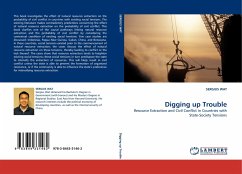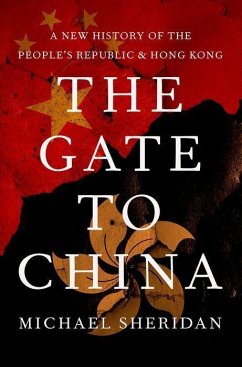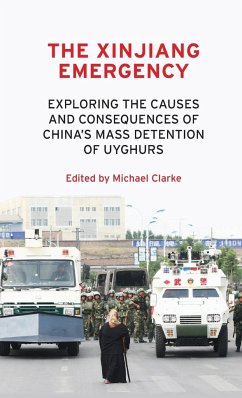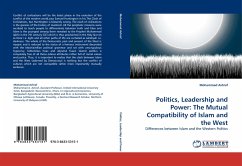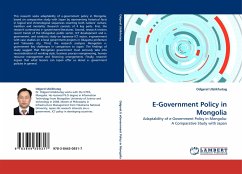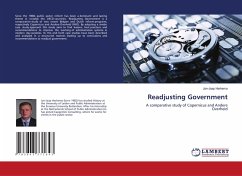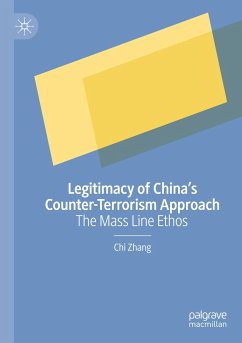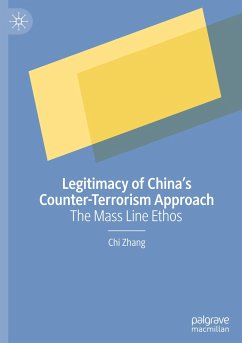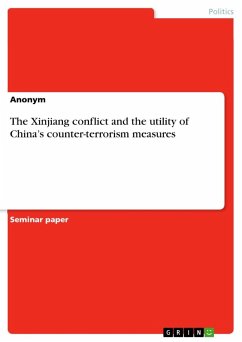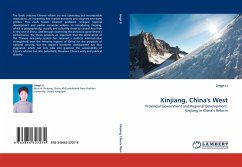
Xinjiang, China's West
Provincial Government and Regional Development: Xinjiang in China's Reform
Versandkostenfrei!
Versandfertig in 6-10 Tagen
52,99 €
inkl. MwSt.

PAYBACK Punkte
26 °P sammeln!
The book criticises Chinese reform via two coexisting but incompatible institutions: an increasing free market economy and stagnant one-party politics. This clash fosters inherent problems: unequal regional development and partial economic reform. In considering Xinjiang, which is geographically, socially and culturally closer to central Asia than to the rest of China, and through examining the provincial government's performance, the thesis presents an argument that the domination of the Chinese one-party system has retained a political administrative stranglehold over the minority regions of...
The book criticises Chinese reform via two coexisting but incompatible institutions: an increasing free market economy and stagnant one-party politics. This clash fosters inherent problems: unequal regional development and partial economic reform. In considering Xinjiang, which is geographically, socially and culturally closer to central Asia than to the rest of China, and through examining the provincial government's performance, the thesis presents an argument that the domination of the Chinese one-party system has retained a political administrative stranglehold over the minority regions of China for the purposes of national security, but the region's economic development has thus stagnated, which not only calls into question the sustainability of China's reforms but also potentially threatens China's unity and political stability.




